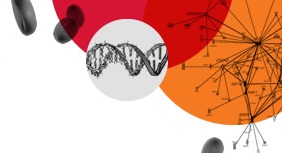Sharing and Healing Through Storytelling in Medicine
In January 2016, a small audience in San Francisco listened to physicians tell stories about life in medicine.
Emily Silverman, JAMA Internal Medicine
In January 2016, a small audience in San Francisco listened to physicians tell stories about life in medicine. One physician described how her perspective on end-of-life care changed after receiving a few words of advice from her mentor. Another explained how the demands of residency training damaged a treasured friendship. A third physician spoke about a chance encounter on the street with a patient who was homeless. No presentation was rehearsed, and the crowd’s reaction shifted easily between laughter and silence. A year later this program, named “The Nocturnists,” attracted enough interest to fill a theater of 250 listeners, and to draw speakers from many health care disciplines from across the San Francisco Bay Area.
Widespread enthusiasm for programs similar to The Nocturnists may reflect a latent hunger for health care narratives within the medical community. Physicians are burdened by an increasingly automated health care system: tethered to their computers, saddled with menial digital tasks, and expected to interpret notes organized in a template and often devoid of real meaning. Faced with high turnover and difficult time constraints, physicians rush through their daily encounters and spend less contact time with both patients and colleagues. Many have argued that stories in medicine are getting lost, which may be a problem that reduces the quality of patient care and contributes to physician depression and burnout.
Storytelling is medicine’s currency. A patient describes his symptoms using a narrative: “Doctor, my legs are so swollen that I can barely walk to the bus stop.” The physician translates the story into a form of medical language and communicates it to colleagues after stripping away the extraneous information: “This is a 53-year-old woman with heart failure and reduced ejection fraction.” Physicians tend not to insert themselves into their patients’ narratives. Medical notes are typically penned in the passive voice, “The decision was made to start antibiotics” as opposed to the active voice, “I decided to start antibiotics.” full article





